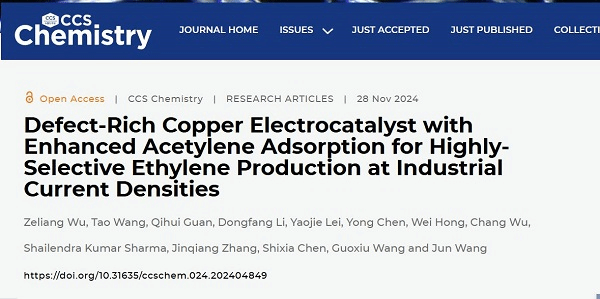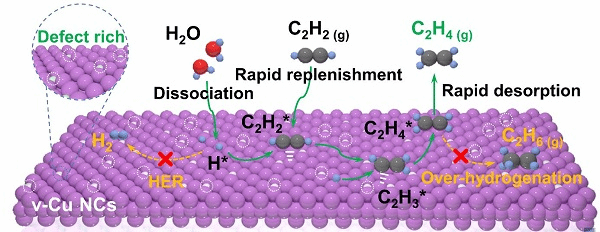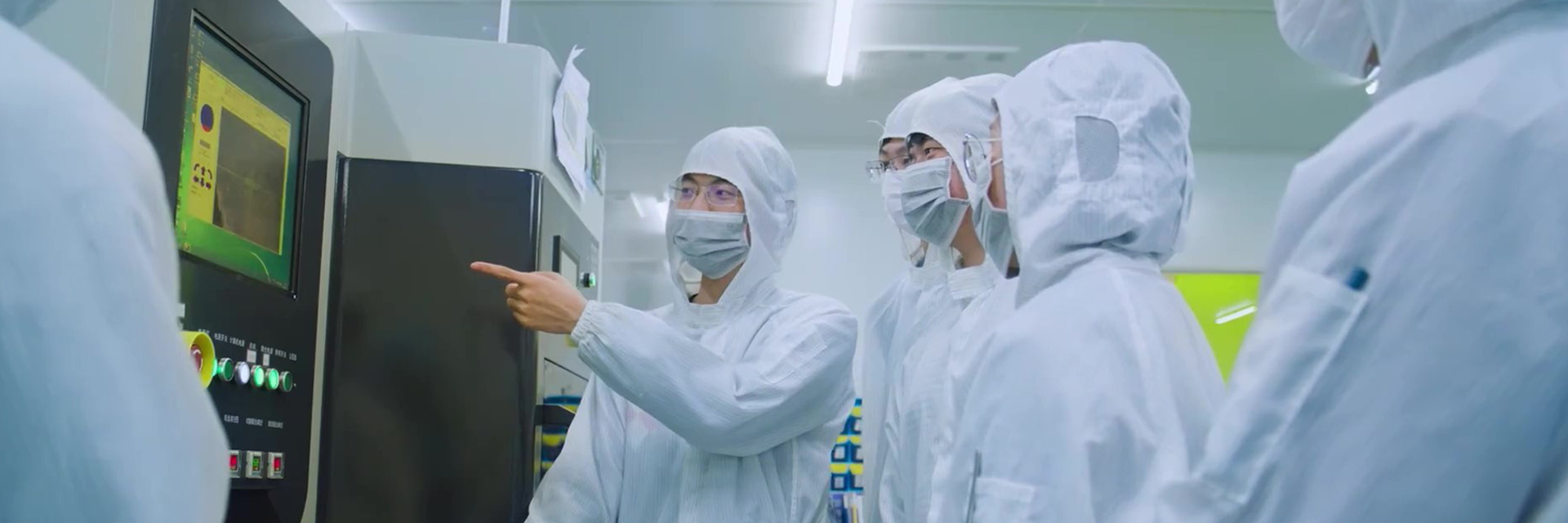(Chen Shixia, School of Chemistry and Chemical Engineering) Recently, a research team from NCU, led by Prof. Wang Jun from the School of Chemistry and Chemical Engineering, has made significant strides in the electrochemical semi-hydrogenation of acetylene (C₂H₂) to produce ethylene (C₂H₄). Their findings were published in CCS Chemistry, the flagship journal of the Chinese Chemical Society, in an article titled “Defect-Rich Copper Electrocatalyst with Enhanced Acetylene Adsorption for Highly Selective Ethylene Production at Industrial Current Densities.” Doctoral candidate Wu Zeliang and Master's candidate Wang Tao are the first authors, while Associate Prof. Chen Shixia and Prof. Wang Jun serve as the corresponding authors. NCU is recognized as the first corresponding institution. This research represents a landmark achievement for the NCU Chemical Engineering department in the field of Electrochemical Engineering.

Prof. Jun Wang's team has long been dedicated to research on gas adsorption and catalytic conversion. In recent years, they have made significant advancements in high-purity gas adsorption and separation, as well as in the electrochemical hydrogenation of alkynes to alkenes. Building on their previous work (Advanced Materials, 2024, 36(41), 2408681), Prof. Wang's team, in collaboration with Prof. Guoxiu Wang’s group at the University of Technology Sydney (UTS), designed and synthesized v-Cu NCs—a novel nano-copper catalyst featuring defect-rich nitrogen and uniformly exposed Cu (100) crystal facets. This breakthrough led to a Faraday efficiency (FE) of 98.3% for C₂H₄ at a current density of 0.7 A cm⁻², marking the first time such high efficiency has been achieved. Additionally, they achieved an ethylene production rate of 17.69 mmol h⁻¹ cm⁻² at a current density of 1.1 A cm⁻², the highest value reported to date. This research not only enables high-selectivity ethylene production from acetylene at industrial current densities, but also facilitates the purification of industrial-grade ethylene to produce polymerization-grade feedstock, thereby advancing the industrialization of electrochemical acetylene semi-hydrogenation for ethylene production.

Original Link :https://doi.org/10.31635/ccschem.024.202404849
Editor: Xu Han
Executive editor: Xu Hang




